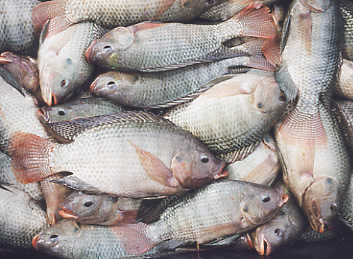A recent study says that an edible fish which is found in Kenya can be used to fight with malaria, the fish completely removed the mosquitoes which transfers this harmful disease.
The researchers were quite aware that this fish – Nile tilapia consumes the mosquito larvae but this study was undertaken to know – its efficiency that how and in what ways it could help in fighting with malaria. This study was first of its kind which examined the effect of the fish.
Omlin, the lead researcher of the study, told in a telephonic interview that — a fish in the field may behave in different manner, in comparison to a fish who is living in aquarium and so it was required to examine how effective is this fish. This fish (tilapia) was never examined before for knowing its power in that how it consume the larvae of mosquito.
Malaria is one of the most common infectious diseases. Malaria is caused by protozoan parasites which are carried by female Anopheles mosquitoes. This disease takes the life of nearly 1 million people in a year throughout the world and nearly 300 million people are affected by it. Nearly 90% of deaths from malaria happen in Sub-Saharan Africa, and most of them are young children.
Malaria has become resistant to certain medicines and vaccines for malaria are under development and usually work very slowly. Malarial transmission can be lowered by preventing and protecting oneself from mosquito bites by using mosquito nets, anti-malarial medicines, and insect repellents or by spraying insecticides inside homes and draining the collected water where mosquitoes lay their eggs. This particular research has provided one more protective measure to help in ending this disease.
The researching team has selected this fish as it was found in Kenya and it is known as a mosquito eater. During the study, the researcher’s cleared up 3 ponds of fishes & vegetation in Kenya and they measured the present population of mosquito residing over their before putting in young tilapia.
After 10 days the researching team noticed that — no mosquito larvae was found in the ponds. After 41 weeks, when tilapia was put in the pond it was discovered that the mosquitoes were reduced by nearly 94%.
The main problem is that most of the fish ponds throughout the country are managed very badly and it also don’t contain sufficient amount of fish. Due to this reason the pond water becomes the main breeding place for the mosquitoes and thus elevating the chances of malaria.
This study appeared in the BioMed Central journal.
Image credit




